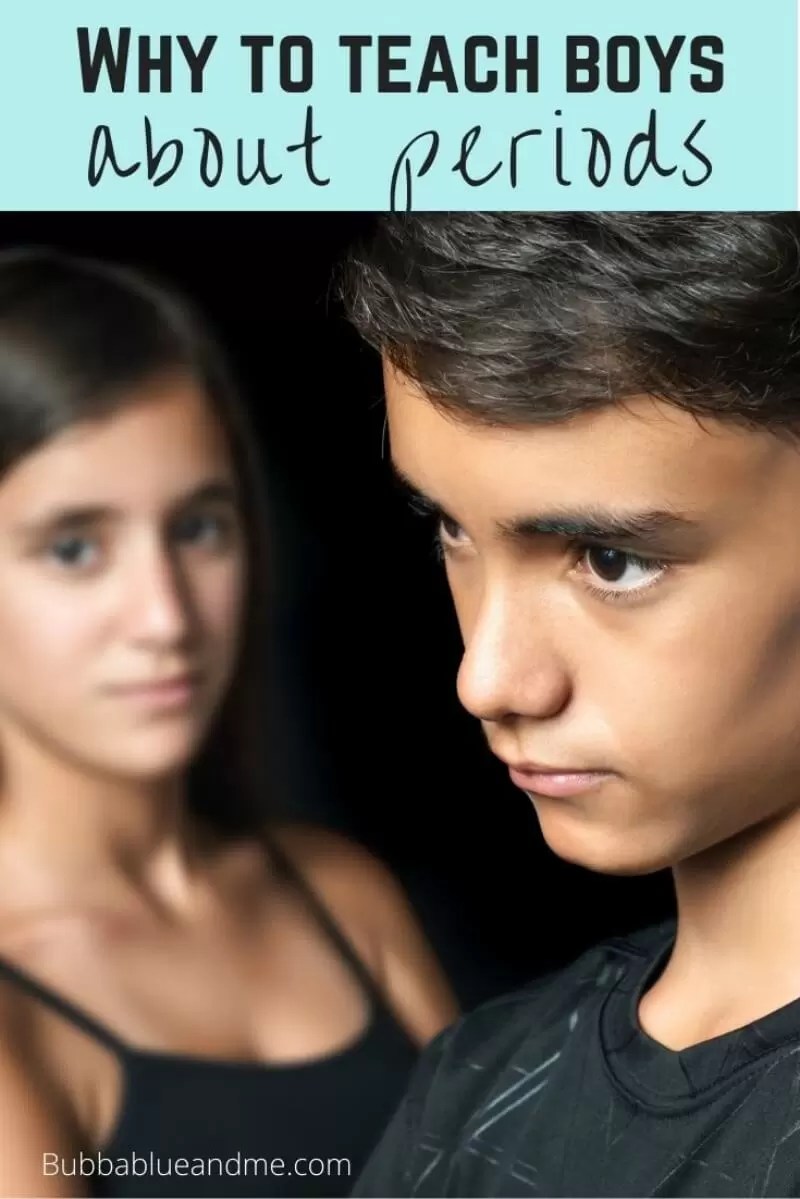Why you should teach boys about periods
My OH would shudder and say it’s all about girls. But I think it’s so important that boys are taught about periods before puberty. And that’s before girls puberty, not boys’. There’s less of a stigma talking about them now compared to years ago, but there’s still occasions where boys know less information because they don’t have them, therefore ‘don’t need to know’.
I’d argue they do, for compassion, for understanding, for respect. And for support. It’s fact, and part of biological understanding, so teach it like that, and they’ll not think anything of it when friends, girlfriends or wives have them.

*Ad-contains affiliate links
When to teach boys about periods
As with most body facts, teach them when they’re ready and asking questions. If boys have a mum at home menstruating, then they’re probably asking questions fairly early on. Whether they’ve shouted out pointing to sanitary products in public toilets, or have walked in on you in the bathroom, these are probably the (most embarrassing to be caught out but) best times to answer questions. In the moment, stating facts.
N was probably about 3 when he walked in on me in the bathroom. Of course he asked what a tampon was, so I just said women and older girls bleed every month and they have them to soak up the blood. That was all.
Since then there have been other conversations, about puberty and how boys and girls are different. I bought him a puberty book* which he’s flicked through and we’ve read a bit of. And he knows how babies are made and how periods work with the egg detaching if a baby isn’t made.
He also asked questions when he moved into key stage 2, wanting to know why the girls and boys had separate cloakrooms. I was able to remind him that girls start puberty before boys, their bodies change and they don’t want to be changing in front of boys. I hope he understands that girls even in primary school could be growing up fast and going through lots of changes, and that boys need to support them. They don’t want to be pointed out as different, or teased. And that if someone needs help he’d know what he should do to help.
Like most farming children, he learns a lot about what happens with humans from what he sees on the farm. Dogs come into season, and he knows that they bleed. Relating a dog’s cycle to a woman’s may seem a bit strange, but it’s something he sees so can understand.
I remember being out one day at an activity place and an older girl had come on her period all over her jeans. I didn’t know whether to point it out to her, or ask the male supervisors to help. I was only about 8 at the time. I hope that N would know the best thing to do in a similar situation is to find a teacher or TA and ask them to help. And to make sure that no-one else is teasing or pointing out anyone’s discomfort.
Hopefully modern day PHSE lessons include boys in the lessons about periods. Unlike our Year 7 talk 30 years ago, where the boys had to leave the room when it got to that part.
Reasons why boys should be taught about menstruation
Boys need to understand the ups and downs of girls and what they go through.
They’ll be able to support friends and future wives and partners who may struggle with their periods.
It will increase knowledge, instead of them growing up believing rumours that might not be correct.
They’ll be less embarrassed having to buy sanitary products in future.
The more boys understand about periods the less stigmatised conversations about them will be.
Boys become fathers, and they should be able to understand what their daughters will go through growing up, and will be able to support them..
If they learn about them when they’re young, they’re less likely to be embarrassed talking about them when grown up.
It’s biology. Removing the emotional and personal aspect, if they’re learning about reproduction and sexual intercourse, periods are a part of that.
Ultimately I want N to be able to not be embarrassed when periods come up in conversation. For many girls, I’m sure they’ve experienced sniggers and comments that aren’t helpful and supportive, making it harder for them to ask for help if they’re struggling. So it’s part of parenting to teach boys enough for them to be mature enough to talk about these things without embarrassing girls about sensitive topics.
Here’s helpful discussion points for talking to children about periods.
What age did you start talking to your children about periods?
Like this post, try these other tips for nearby days out.








